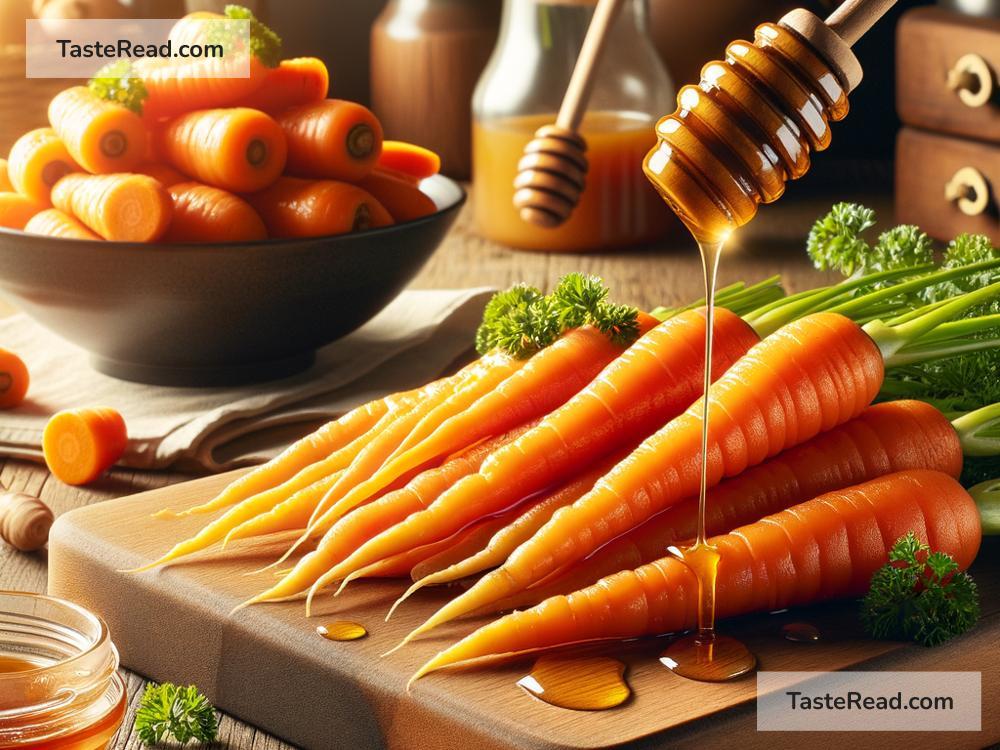The Truth About Carrots and Their Sweetness
Carrots are one of the most popular vegetables in the world. Their bright orange color makes them easy to recognize, and their crunchy texture makes them fun to eat. While many people know carrots are healthy, not everyone knows why they taste sweet. Have you ever wondered about the truth behind carrots and their natural sweetness? Let’s explore this delicious vegetable and uncover why carrots are sweet and more!
Why Are Carrots Sweet?
If you’ve ever eaten a raw carrot, you’ve probably noticed its sweetness. This sweetness comes from natural sugars found in carrots. Like many vegetables, carrots contain carbohydrates, which are nutrients that provide your body with energy. These carbohydrates can take different forms, such as starch or sugar. In carrots, much of their carbohydrate content is sugar — specifically, sucrose, glucose, and fructose.
Carrots are often sweeter than other vegetables because they have higher sugar levels compared to greens like spinach or broccoli. That’s why many people, including kids, enjoy eating raw carrots; they feel more like a treat than a boring vegetable. In fact, the sweetness of carrots makes them a versatile ingredient, used in everything from soups and salads to desserts like carrot cake.
Sweetness Depends on Growing Conditions
Did you know that not all carrots taste equally sweet? The sweetness of a carrot can change depending on where and how it’s grown. Several factors play a role in this, such as soil quality, temperature, and harvest timing.
-
Soil Quality: Carrots grow best in loose, nutrient-rich soil. Healthy soil helps the carrot plant produce more sugars, resulting in sweeter carrots. If the soil is poor or dry, the carrots may turn out less sweet and more bitter.
-
Temperature: Carrots love cooler weather. When temperatures drop, especially as the carrot matures, the plant converts its starches into sugars as a way to protect itself. This process increases the sweetness. That’s why carrots harvested in fall or early winter often taste sweeter than those harvested in summer.
-
Harvest Timing: Baby carrots (small, immature carrots) tend to be less sweet because they haven’t had enough time to fully develop their sugars. On the other hand, carrots that are left in the ground longer often have a sweeter taste—but waiting too long can make the carrot woody and tough.
Do Different Types of Carrots Affect Sweetness?
Carrots come in many shapes, sizes, and even colors. While the orange carrot is the most common, there are also purple, yellow, white, and red carrots. The type of carrot can influence its sweetness.
For example, orange carrots are usually the sweetest variety, which is why they’re so popular. Purple carrots can taste earthy with a hint of sweetness, while yellow and white carrots are milder. Some heirloom carrot varieties are specifically bred for their extra-sweet flavor, which makes them perfect for snacking or juicing.
When buying carrots at the store or market, you might want to test the sweetness by nibbling a piece. If you’re looking for carrots to use in desserts or smoothies, choose the ones that taste the sweetest.
Can Carrots Get Sweeter After Harvest?
Interestingly, carrots can continue to develop sweetness even after they’ve been picked! If you store carrots in the refrigerator for a few days, some of their starches may change into sugars, making them a little sweeter. However, this only happens under cold conditions. If carrots are left out at room temperature for too long, they can spoil and lose their natural sugars.
To keep your carrots sweet and fresh, always store them in the fridge. You can also keep them in a plastic bag or container to lock in moisture and prevent them from drying out.
Are Sweet Carrots Still Healthy?
Even though carrots contain sugar, they’re still a very healthy food. Unlike the sugars in candy or soda, the sugars in carrots are natural and come with many nutritional benefits. Carrots are packed with vitamins, minerals, and fiber. They’re especially high in vitamin A, which is great for your eyes and skin. Carrots also contain antioxidants that help your body fight off damage caused by free radicals.
The sweetness in carrots makes them a useful tool for anyone trying to eat healthier. If you have a sweet tooth but want to avoid eating processed sugar, snacking on a carrot can be a satisfying substitute. It’s low in calories, high in nutrients, and naturally delicious.
Fun Facts About Carrots and Sweetness
- Carrots have been grown for thousands of years, but early carrots were more bitter and less sweet than the ones we eat today! Farmers have selectively bred carrots to become sweeter over time.
- Some people use carrots to make natural sweeteners. For instance, carrot syrup can be used as an alternative to sugar in recipes.
- Cooking carrots can bring out even more sweetness. Roasting or steaming carrots helps break down their fibers and makes their sugars more noticeable.
Conclusion
Carrots are much more than just a healthy vegetable; they’re a naturally sweet treat! Their sweetness comes from natural sugars, influenced by growing conditions, harvest timing, and how they’re stored. Thanks to their nutritional benefits and versatility, carrots are a fantastic choice for snacks, meals, and even desserts. So next time you bite into a carrot, take a moment to enjoy its crunchy sweetness and remember how amazing nature can be!


